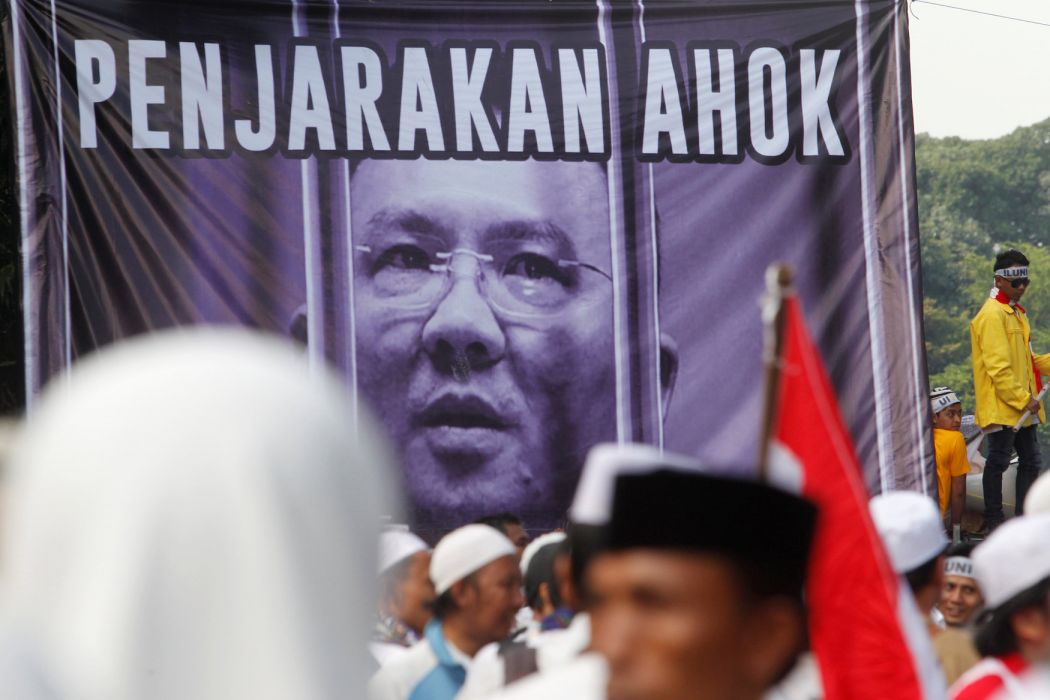One of the most shocking aspects of the guilty verdict sentence for former Jakarta Governor Basuki “Ahok” Tjahaja Purnama last week was that the panel of judges decided to give him a much harsher sentence than was demanded by the government prosecutors, who had asked that Ahok only be found guilty on a lesser charge of disturbing the public and sentenced to two years probation as there was no evidence to support the original blasphemy charge.
The judges ignored the prosecution’s request and admission that there was no evidence of blasphemy, taking it upon themselves to decide that there was, in fact, evidence Ahok had insulted Islam by referring to verse Al-Maidah 5:51 from the Koran (evidence that included testimony from Rizieq Shihab, leader of the infamous Islamic Defenders Front) and giving him a 2-year prison sentence which, if upheld, would also prevent the former governor from ever holding public office in Indonesia for the rest of his life.
Ahok’s defense lawyers are, of course, filing an appeal over the decision with the Jakarta High Court. But now the Attorney General’s Office (AGO) has promised that the prosecutors will also file an appeal against the verdict that has been widely criticized both in Indonesia and internationally as a total miscarriage of justice.
“I heard that the defendant is appealing. The prosecution will, in accordance with standard procedure, appeal as well,” Attorney General M. Prasetyo said Friday as quoted by MetroTV.
In explaining why prosecutors would be appealing the judges’ decision, Prasetyo kept referring to it as a matter of standard operating procedure. And indeed, there are innumerable cases in which both the defense and the prosecution appeal a judge’s decision – but almost always it is the defense asking for a lesser verdict and the prosecution asking for a heavier one.
We are not legal historians, but we’d have to guess that this is one of the few rare occasions in the annals of trial law in which BOTH the defense and the prosecution are set to appeal for a lesser verdict.
Of course, Prasetyo does not want to give the impression that the government is attempting to directly intervene and assist Ahok (something President Joko Widodo seems to have assiduously avoided). Thus the reiteration that the prosecution’s appeal is simply standard procedure.
The attorney general did mention that the prosecutor’s sentencing request was based on the legal facts of the trial (i.e. that there was no evidence of actual blasphemy) although he avoided saying that the judges ignored those facts.
“The prosecution was based entirely on the evidence and the fact that there is a difference of opinion with the judges is common, it is not unusual, it often happens,” Prasetyo said, adding that the AGO still respects the judges’ decision and would not pressure their independence in any way.
With Ahok supporters around the world protesting the verdict, with governments and NGO around the world protesting the verdict, and with both the defense and prosecution filing appeals, is there a chance that the Indonesian judiciary might have a change of heart? We hope so, but don’t count on it.




